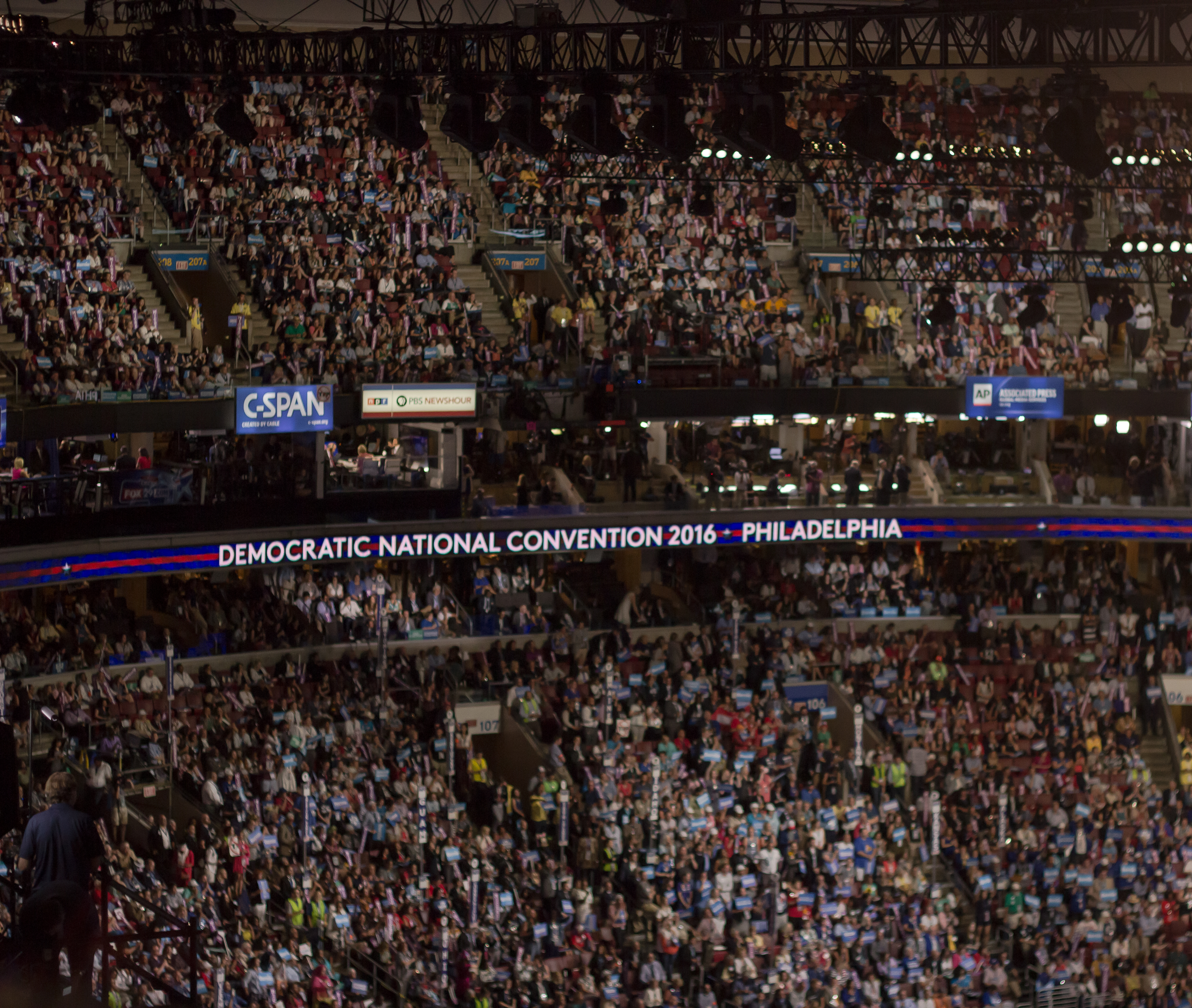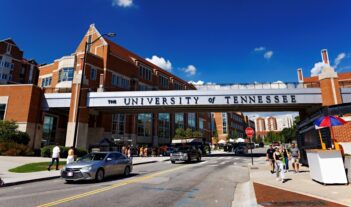
Following the fallout over a massive email leak, the Democratic Party sought to unite on the Convention’s opening night.
The theme of the Democratic National Convention’s opening night was “United Together,” a concept that initially had been aimed at underscoring the Democratic Party’s focus on keeping American families together, protecting American workers, and ensuring equality. And although this theme did bring those objectives into sharp relief on Monday evening, “United Together” appeared to be largely defined in terms of another objective altogether—one aimed at uniting the Democratic Party itself, after the fallout from a recent massive email leak that some say threatened to deepen the fissure in an already-splintered party.
This email leak, according to critics, revealed that the Democratic National Committee was decidedly pro-Hillary Clinton and had actively sought to undermine U.S. Senator Bernie Sanders (D-Vt.) during the primaries—stoking the ire of many of Sanders’ supporters, among others, and threatening to undermine the Clinton campaign’s previous momentum. Monday night, therefore, largely became a plea to these disaffected party members to leave their doubts at the door, and to coalesce around Clinton.
Among those who took to the podium calling for unity were several of Sanders’ delegates, including State Representative Danielle Russell (D-Maine), and businessman and former NAACP president and chief executive officer Ben Jealous. Yet their speeches were, at times, met with chants and cheers for Sanders.
Despite the overriding focus on unifying the party in the wake of the email leaks, many of the speakers seized the opportunity to address a host of regulatory and legislative topics associated with the Democratic Party’s platform—revealing commonality, if not unity, around a variety of significant issues.
Gun Control
Connecticut Governor and President of the Democratic Governors Association Dan Malloy spoke about a string of recent reforms in Connecticut, including the passage of the first-ever legislation at the state level mandating paid sick leave, as well as legislation requiring universal background checks on firearm sales in the wake of the Sandy Hook shooting. He called for the party to elect more Democratic governors, as a means of preserving the party’s agenda—particularly in the face of congressional redistricting, slated to take place in 2020. Governor Malloy also spoke in support of Clinton’s recently announced running mate, U.S. Senator Tim Kaine (D-Va.), noting Kaine’s record of success in producing jobs in Virginia while he was serving as governor in the middle of an economic crisis.
Trade
In what they explained was the importance of protecting the American workforce, U.S. Senators Elizabeth Warren (D-Mass.), Jeff Merkley (D-Ore.), and Bernie Sanders (D-Vt.) each condemned the Trans-Pacific Partnership.
Campaign Finance
Jeff Merkley and Bernie Sanders both called for the Supreme Court’s controversial case, Citizens United v. Federal Election Commission, to be overturned.
Local Communities
Philadelphia Mayor Jim Kenney remarked on the recently passed Philadelphia soda tax, praising it because of what he asserted was its potential to help fund neighborhood programs and community buildings.
U.S. Senator Bob Casey (D-Pa.) introduced a plan to invest in jobs for Clinton’s first 100 days, if she is elected. The plan would involve rewarding business that share property, preserve jobs domestically, and invest 10 billion dollars in new manufacturing jobs.
Minimum Wage
Diane Russell, Ben Jealous, Brendan Boyle (D-Pa.), State Representative Tina Kotek (D-Ore.), and International President of the Service Employees International Union Mary Kay Henry espoused raising the federal minimum wage.
Incarceration Reform
Jeff Merkley called for an end to mass incarceration. Similarly, Sanders spoke on shifting the focus away from incarcerating young people, and instead on providing these people with good schooling.
Education Reform
Diane Russell, Ben Jealous, American Federation of Teachers President Randi Weingarten, ShareFile Founder Jesse Lipson, Elizabeth Warren and Sanders each spoke in favor of reducing the cost of higher education and student debt. To that end, Sanders—in what were several proposals that he presented that he recognized were compromises between his and the Clinton campaign’s agendas—announced that he had worked with Clinton on a proposal that would guarantee children of all families that make less than $125,000 annually the ability to attend a public university.
Immigration Reform
U.S. Representative Luis V. Gutiérrez (D-IL) called for a fair immigration system for the 11 million undocumented immigrants. Karla, age 9, and her mother, undocumented immigrant Francisca Ortiz, took to the podium and shared their story—one that began with the fear of Karla’s parents being deported, but which, they said, would end in confidence, under a Clinton Administration and the Democratic Party’s agenda to protect families by keeping them together.
Equal Pay
U.S. Senators Kirsten Gillibrand (D-N.Y.) and Elizabeth Warren were among various speakers who called for equal pay for equal work, for and reducing the gender gap in terms of income earnings. Senator Gillibrand also called for paid family leave.
Healthcare
Bernie Sanders called for a number of health care reforms, including reducing the number of underinsured Americans, establishing public option, and allow anybody 55 yeas and older to opt into Medicare.
First Lady Michelle Obama’s speech—by many accounts considered to be one of the most rousing and forceful of the evening—focused largely on President Obama’s legacy. Her speech did eventually shift to the future, as she spoke about what she proclaimed was the remarkable quality of Hillary Clinton’s candidacy, and about her faith in Clinton’s ability to serve as a strong president. She received uproarious applause, from delegates and audience members alike.
Closing out the evening was Bernie Sanders, who was welcomed with vigorous cheers. He expressed his disappointment in being unable to secure the Democratic nomination, but he spoke in full support of a Clinton nomination and presidency.
Although it remains to be seen whether Sanders’ strong supporters are willing to join the Clinton camp, the evening ended with many of the Convention’s attendees feeling emboldened about at least one point: the need to prevent the Republican party’s newly anointed nominee, Donald Trump, from becoming president.



